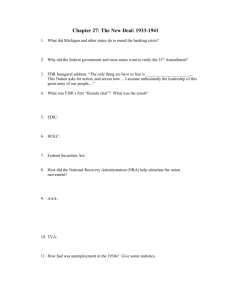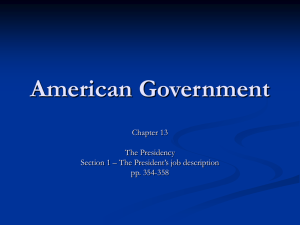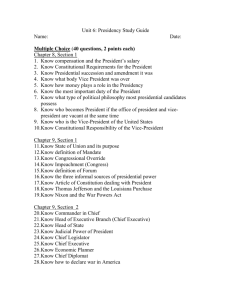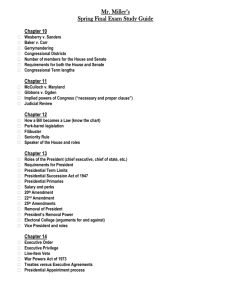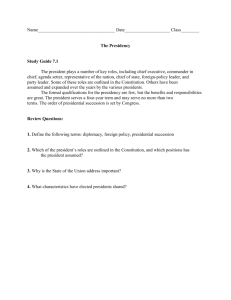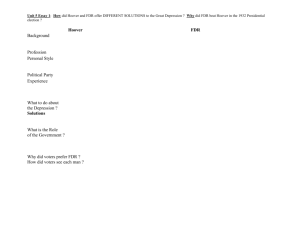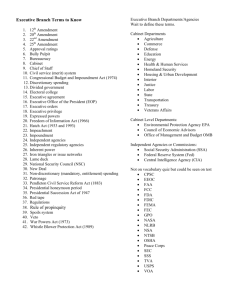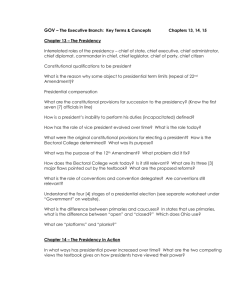After Franklin Delano Roosevelt's four term
advertisement
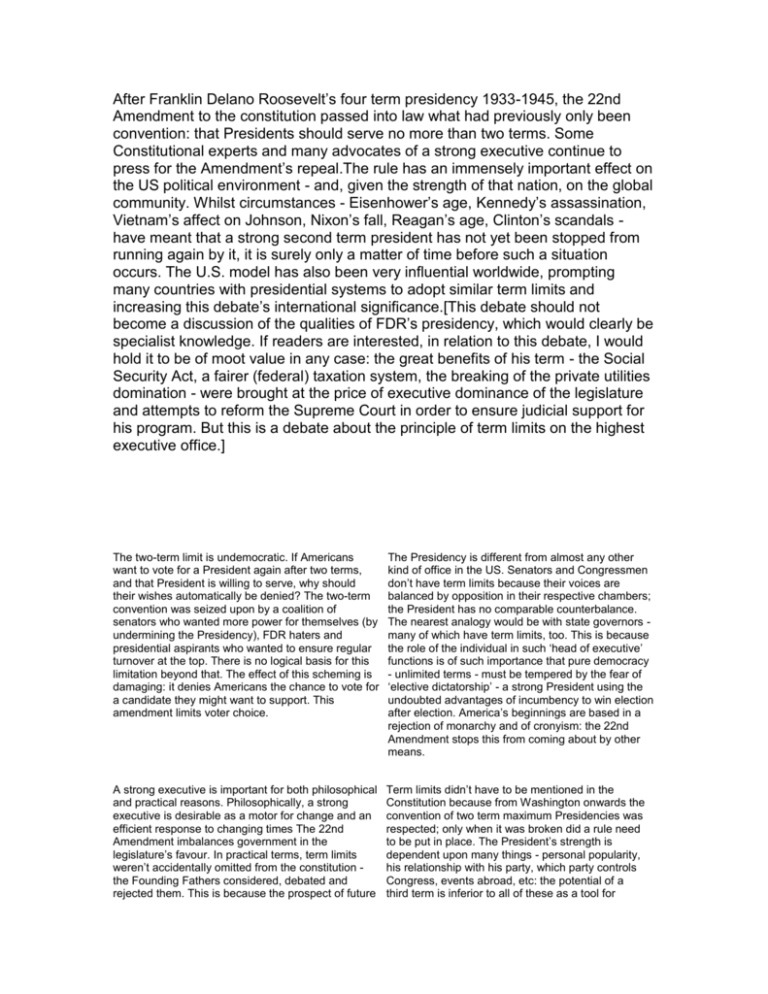
After Franklin Delano Roosevelt’s four term presidency 1933-1945, the 22nd Amendment to the constitution passed into law what had previously only been convention: that Presidents should serve no more than two terms. Some Constitutional experts and many advocates of a strong executive continue to press for the Amendment’s repeal.The rule has an immensely important effect on the US political environment - and, given the strength of that nation, on the global community. Whilst circumstances - Eisenhower’s age, Kennedy’s assassination, Vietnam’s affect on Johnson, Nixon’s fall, Reagan’s age, Clinton’s scandals have meant that a strong second term president has not yet been stopped from running again by it, it is surely only a matter of time before such a situation occurs. The U.S. model has also been very influential worldwide, prompting many countries with presidential systems to adopt similar term limits and increasing this debate’s international significance.[This debate should not become a discussion of the qualities of FDR’s presidency, which would clearly be specialist knowledge. If readers are interested, in relation to this debate, I would hold it to be of moot value in any case: the great benefits of his term - the Social Security Act, a fairer (federal) taxation system, the breaking of the private utilities domination - were brought at the price of executive dominance of the legislature and attempts to reform the Supreme Court in order to ensure judicial support for his program. But this is a debate about the principle of term limits on the highest executive office.] The two-term limit is undemocratic. If Americans want to vote for a President again after two terms, and that President is willing to serve, why should their wishes automatically be denied? The two-term convention was seized upon by a coalition of senators who wanted more power for themselves (by undermining the Presidency), FDR haters and presidential aspirants who wanted to ensure regular turnover at the top. There is no logical basis for this limitation beyond that. The effect of this scheming is damaging: it denies Americans the chance to vote for a candidate they might want to support. This amendment limits voter choice. The Presidency is different from almost any other kind of office in the US. Senators and Congressmen don’t have term limits because their voices are balanced by opposition in their respective chambers; the President has no comparable counterbalance. The nearest analogy would be with state governors many of which have term limits, too. This is because the role of the individual in such ‘head of executive’ functions is of such importance that pure democracy - unlimited terms - must be tempered by the fear of ‘elective dictatorship’ - a strong President using the undoubted advantages of incumbency to win election after election. America’s beginnings are based in a rejection of monarchy and of cronyism: the 22nd Amendment stops this from coming about by other means. A strong executive is important for both philosophical and practical reasons. Philosophically, a strong executive is desirable as a motor for change and an efficient response to changing times The 22nd Amendment imbalances government in the legislature’s favour. In practical terms, term limits weren’t accidentally omitted from the constitution the Founding Fathers considered, debated and rejected them. This is because the prospect of future Term limits didn’t have to be mentioned in the Constitution because from Washington onwards the convention of two term maximum Presidencies was respected; only when it was broken did a rule need to be put in place. The President’s strength is dependent upon many things - personal popularity, his relationship with his party, which party controls Congress, events abroad, etc: the potential of a third term is inferior to all of these as a tool for tenure gives the Presidency leverage to get things done. Without that, Presidential terms suffer the lame duck effect, in which a President is less and less able to force his legislative agenda: for example, after Eisenhower’s overwhelming win in 1956, Congressional Republicans increasingly ignored his leadership despite his fresh and powerful mandate. The limit effectively denies the choice voters have made of coming to practical fruition: the status quo undermines second term presidents. times of national or international crisis, continuity and experience can be vital. Electorates can recognise this - hence FDR’s third and fourth term wins during the Second World War. The 22nd Amendment automatically denies the possibility of democratically approved continuity. This is particularly worrying given that thousands of jobs in the executive branch of government change hands every time a new President is elected, something which is not so common in the civil service of other countries. The opposition must show why the idea of continuity in a crisis is less important than the principle of a two-term limit. Some policies require long term leadership to ensure their success, over a long period of time: for example, FDR’s post-depression social reforms, ‘The New Deal.’ If those policies are ones voters support, why deny them the chance of continuous development? making others help the presidential program. In any case, the power of potential future office primarily draws its strength from potential patronage - a nepotistic consideration which, though inevitable, should not be credited with such importance that a third term should be allowed to encourage it. Since the end of the Second World War, the CIA and the White House administration have conducted bipartisan briefings for presidential candidates of both parties, irrespective of the incumbent’s allegiance, to ensure continuity. The actual presence of the same individual is far less important than the knowledge and understanding this scheme guarantees. The ‘have experience or not have experience’ challenge presented is a false dichotomy. If these are policies voters really support, then the party the President belongs to can continue them. If they are so weak that only the charisma of a particular President can see them through the legislative process, then perhaps it is right that they fall.
